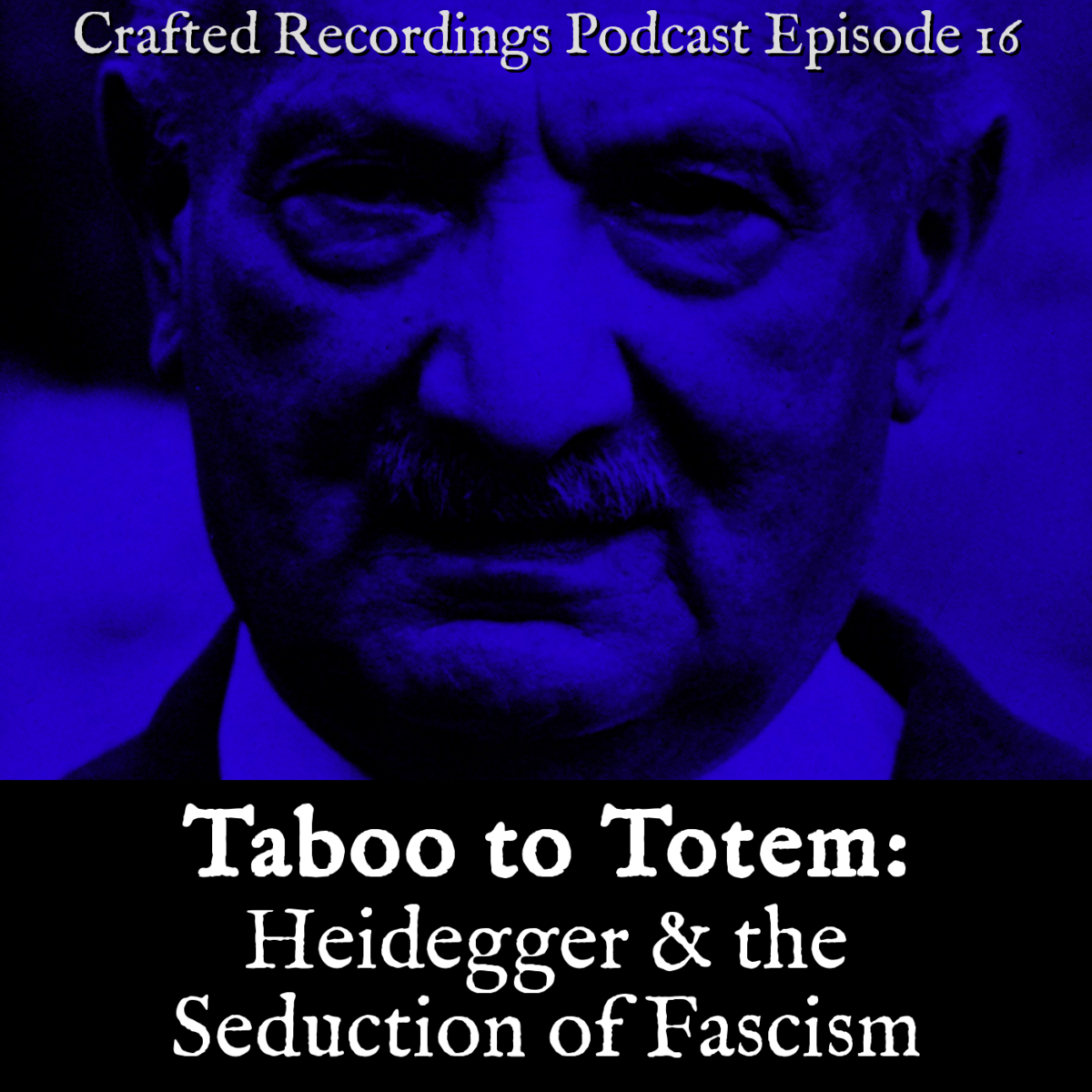Podcast: Play in new window | Download (Duration: 37:18 — 85.4MB)
Subscribe: Apple Podcasts | RSS
©2017 Crafted Recordings. Some Rights Reserved (CC BY-NC-SA 4.0). As always, Crafted Recordings is about stories. If you have a story you’d like to tell, get in touch, yeah?
Episode Notes
First off, apologies for the long delay between episodes. Producing this episode was a struggle on many levels; Heidegger readers will not be surprised. Thinking about Heidegger evokes numerous struggles, one of which is Heidegger’s relationship with fascism and anti-semitism. Despite this history, interest in Heidegger’s thought remains strong. To find out why, and to more closely examine Heidegger’s (probably quite short-lived) seduction by fascist ideology, we interviewed three Heidegger scholars (in order of their appearance in the episode): Jeremiah Conway, philosopher, teacher, and author of The Alchemy of Teaching; philosopher, teacher, and Gods & Radicals writer Kadmus Herschel; and Susanne Claxton, philosopher, teacher, and author of Heidegger’s Gods: An Ecofeminist Perspective.
Music for this episode came from Gin Mill Julep and Lani Thompson. Gin Mill Julep, at the time of this recording several years ago, consisted of Greg Bjork on mandolin, Ann Murray on accordion, and Paul Mattor on upright bass. The song in this episode is called “Mettsa Kukkia,” which is a single live performance (no overdubs) recorded in an old church building alongside the Saco River in Maine, and was remixed and edited for this episode. Lani’s performance of “Song Of The Nesting Bird” is on the kantele, an 11-stringed Finnish instrument that reminds me of a dulcimer with an utterly enchanting sound. Other background drone sounds and percussion were also added throughout the episode.
Translations
In the episode, there are three excerpts of Heidegger himself speaking in German. I found the following translations for them, but since I do not speak German I cannot vouch for their accuracy. They seem coherent to me, and are consistent with my very cursory understanding of Heidegger’s thought:
0:17 – 0:30
“The relation of human beings to language is undergoing a transformation, the consequences of which we are not yet ready to face.”
23:55 – 24:38
“I would say that men – for example in communism – have a religion, because they believe in science. They believe unconditionally in modern science. And this unconditional belief in science, that means the confidence in the certainty of the results of science is a belief and is, in a certain way – something that exceeds the existence of a single person, and is therefore a religion. And I would say: no one is without a religion, and everyone is in a certain manner transcending themselves.”
36:07 – 37:09
“The decisive experience of my thinking and that means at the same time for western philosophy the meditation on the history of western philosophy has shown me, that in the past one question did never appear: the question of being. And this question is relevant because we determine, in western thinking, that man is in a relation to being and that he exists by corresponding to being.”

